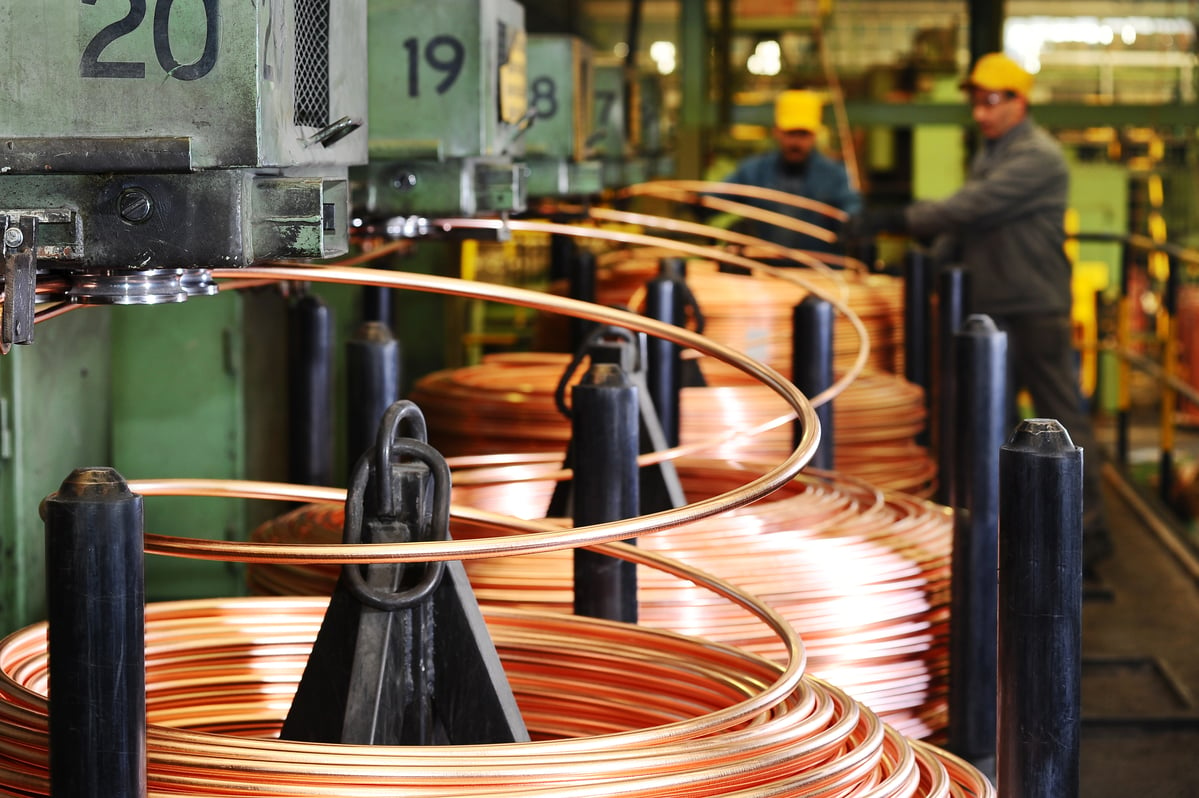Freeport-McMoRan (FCX +2.65%) is off to a brutal start in 2016 with its stock price down nearly 40% in just over a week. The company is being battered by a barrage of negative news items, with the latest being another analyst downgrade. The rough start, which follows a very tough 2015, has a lot of investors wondering if the company will make it through the year in one piece.
Throwing in the towel
The latest news battering Freeport-McMoRan was an analyst report by Jefferies, which downgraded the stock from a buy to a hold, while also cutting the company's price target from $17 to $5. The move was made for three reasons: Lower copper price forecasts, higher risk in Indonesia, and the company's reluctance to sell assets.
The weakness in the copper price has been the biggest weight on Freeport-McMoRan's stock this year. Its price recently hit a six-year low due to growing concerns of a worsening slowdown in China, which is the world's biggest copper market. With copper falling below $2 per pound it calls into question Freeport-McMoRan's ability to generate sufficient cash flow to both manage its debt and fund its capex plan. It's a plan that is based on a $2 copper price in 2016 and $45 per barrel for oil. Presently, copper is a few pennies below that level, while oil has plunged into the low $30s.
Those price weaknesses not only will weigh on the company's cash flow, but are weighing on the value of oil and copper assets. That's making it even less attractive for Freeport-McMoRan to pursue asset sales to pay down its large debt load. In fact, asset values have fallen so steeply that Jefferies is concerned that "window of opportunity for Freeport-McMoRan to repair its balance sheet may have closed." That's after the company has yet to find a funding solution for its oil and gas business after searching for alternatives for more than a year.
The weight of debt
Weak oil and copper prices are really amplifying Freeport's biggest issue, which is its gargantuan debt level. That debt recently resulted in the company's credit being downgraded by Fitch, while it was also put on review for a downgrade by Moody's. Having said that, Fitch did note in its downgrade report that it believes that Freeport-McMoRan does have adequate liquidity to get through the bottom part of the cycle, with the company's leverage profile improving by 2017 irrespective of asset sales, which have the potential to accelerate debt reduction.
The problem is that asset sales are tough to do right now because they are impossible to value in a falling commodity price environment. For example, Freeport-McMoRan paid nearly $20 billion for its oil and gas assets in 2013, but those assets are feared to only be worth roughly $3 billion today because of impact from the drop in oil and gas prices. Meanwhile, mining assets have been nearly impossible to sell because banks don't want to finance these deals. Brazilian mining giant Vale (VALE +2.70%), for instance, hasn't been able to obtain financing to complete a deal to sell its stake in its Mozambique coal operations, which is a deal it originally struck in 2014 with Japan's Mitui. That deal was originally supposed to close in the middle of last year and bring $3 billion into Vale's coffers. Instead, Vale has had to resort to obtaining rescue financing to provide it with the cash it needs to pay for its expansion projects. This doesn't bode well for Freeport-McMoRan because even if it can agree on a price for some of its mining assets, the buyer might not be able to finance the deal.
Investor takeaway
Freeport-McMoRan is being barraged on all sides. The continued slump in commodity prices is causing analysts to grow concerned with the company's ability to weather this storm due to its weak balance sheet. Because of this the company's stock price will continue to be very volatile.








